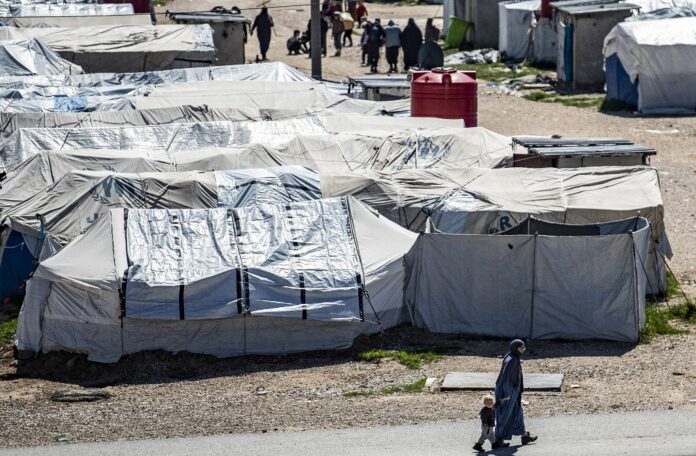LONDON: Germany and Denmark have flown female suspected Daesh members and their children from Syria.
Many of the adult women were arrested on arrival, but the countries pledged to do all they can for the “blameless” children.
Germany repatriated 23 children and their eight mothers from Roj camp on Wednesday evening, while Denmark brought back 14 children and three women.
Germany’s Foreign Minister Heiko Maas said the children bore no responsibility for their situation and “it is right that we do everything to make possible for them a life in safety and a good environment.”
But, he added, “the mothers will have to answer to criminal justice for their actions.”
He thanked Kurdish authorities in Syria, Denmark, and “our American partners, who provided logistical support.”
US allies the Syrian Democratic Forces, a majority Kurdish group with a significant Arab contingent, have been overseeing the detention of thousands of former Daesh members and their families.
But they have been vocal in their desire for states to bring home their citizens in the camps, saying they cannot hold them in perpetuity.
Conditions in the camps are extremely dangerous and unsanitary, but the SDF — which is still involved directly in the Syrian war — does not have the resources to improve the lives of its detainees.
Germany and Denmark will charge some of the women returning from Syria with terrorism-related crimes, including membership of a foreign terrorist organization and promoting terrorism.
Countries such as the UK have taken a different approach, choosing not to repatriate any adults and instead stripping them of their citizenship.
A British woman currently in Syria, Nicole Jack, pleaded with authorities earlier this week to allow her to return home.
Her mother also begged the government to allow Jack and her three daughters home, saying her grandchildren did not deserve to be condemned to a life in refugee camps and that her daughter should “face the consequences” of her actions in British courts.
Another high-profile British case has been that of 22-year-old Shamima Begum, who made headlines for contesting the removal of her citizenship.
Last month, she begged the British public to forgive her for joining Daesh when she was 15, saying in an interview there was “no evidence” that she had a role in preparing acts of terrorism.
Health Secretary Sajid Javid was home secretary when the decision was made to remove her citizenship.
He defended the move, saying it was “morally right” because it was done in order to “protect the British people.”
It is estimated that there are at least 16 British women and 35-60 British children detained in Syrian camps.

